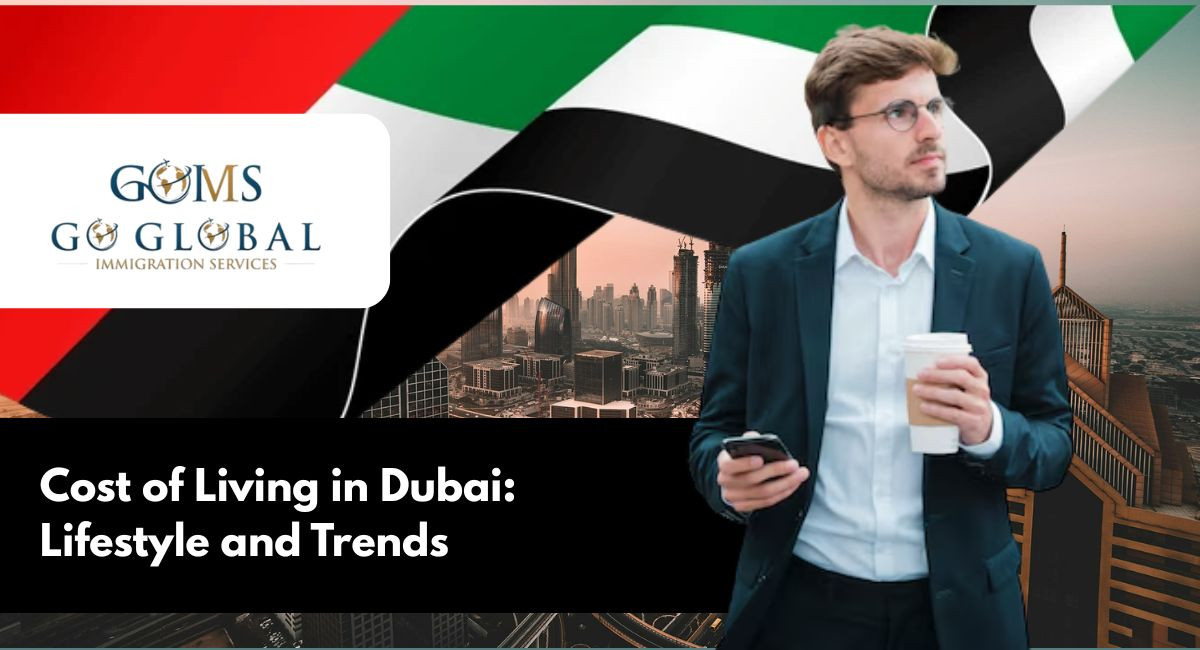Dubai, a city known for its modern skyline, luxury lifestyle, and tax-free income, has become a top destination for professionals, families, and students. With a dynamic economy and world-class infrastructure, Dubai offers not just career opportunities but a vibrant urban lifestyle.
The cost of living in Dubai varies based on lifestyle, family size, and housing choices. On average, a single person may spend between AED 6,500 and 18,000 per month, while a family of four may require AED 18,000–44,000 monthly to maintain a comfortable standard of living.
Cost of Living in Dubai
Dubai ranks as one of the most expensive cities in the Middle East, largely due to housing, education, and lifestyle expenses. The table below summarizes estimated monthly expenses in 2025:
Housing
Accommodation is the largest monthly expense for residents in Dubai. Costs vary significantly depending on the location and type of property:
Studio Apartments: AED 45,000–70,000/year in areas like Jumeirah Village Circle.
1–2 Bedroom Apartments: AED 80,000–145,000/year in central districts like Downtown Dubai or Business Bay.
Villas/ Family Homes: AED 320,000–500,000/year depending on size and location.
Shared apartments and rooms can help reduce rental expenses by 30–40%, making the city more affordable for young professionals.
Utilities and Internet
Basic utilities (electricity, water, cooling, and garbage) average between AED 500 and 1,200/month for small apartments. Internet packages typically cost AED 300–500/month. Combined, residents should budget around AED 600–1,500 monthly, depending on consumption.
Food and Groceries
Food costs in Dubai are flexible, depending on lifestyle:
Single Person: AED 800 – 1,500/month for groceries.
Family of Four: AED 3,000 – 4,500/month.
Dining out is moderately expensive; a casual meal for two at a mid-range restaurant costs AED 150 – 250.
Supermarkets like Carrefour, Lulu, and Spinneys offer international and local products, helping expats manage grocery budgets.
Transportation
Dubai offers efficient public and private transportation options:
Public Transport: Metro, buses, and trams are accessible via the Nol card. Fares range AED 3–7 per trip.
Private Cars: Fuel is relatively affordable, but parking and tolls add extra cost. Monthly car expenses usually range from AED 1,000–1,500.
Ride-hailing apps like Uber and Careem are widely used but can increase transportation costs.
Healthcare and Insurance
Healthcare quality in Dubai is high, but medical services can be costly without insurance. Health insurance is mandatory for all residents. Premiums vary AED 500–1,000/month depending on coverage and family size. Many employers provide insurance as part of compensation packages.
Education
Families with children face additional expenses for education. International school fees range from AED 30,000 to 100,000 per year, depending on the curriculum (CBSE, British, American, IB) and school ranking. Early planning is crucial, as popular schools often have long waiting lists.
Lifestyle and Entertainment
Dubai offers a cosmopolitan lifestyle:
Fitness clubs: AED 150–400/month
Dining and nightlife: AED 500–2,000/month depending on frequency
Shopping and leisure: AED 500–3,000/month
The city is safe, with modern amenities, leisure options, and cultural attractions including beaches, malls, and desert experiences.
Recent Trends (2025)
Rising Housing Costs: Rental prices increased by 8–12% compared to 2024, especially in premium areas.
Inflation Impact: Food and transportation costs have seen slight increases of 3–5%.
Economic Stability: Dubai’s economy continues to grow, attracting foreign talent and boosting employment opportunities.
Digital Transformation: Online shopping and e-services are reducing minor daily expenses for residents.
Types of Residence Permits in Dubai
For expats planning to live and work in Dubai, understanding residence permits is crucial. The type of permit, such as an Employment Visa, Investor Permit, or Family/Dependent Visa, affects access to housing, healthcare, and education. These factors play a key role in determining the cost of living in Dubai.
Employment Visa / Residence Permit – For professionals with a confirmed job offer from a Dubai-based employer. Validity is typically 2–3 years and renewable.
Investor/ Business Owner Permit – For entrepreneurs establishing a company or investing in Dubai. Requires proof of financial stability and business registration.
Family/ Dependent Visa—Allows residents to sponsor immediate family members, including spouse, children, or parents. Housing and schooling costs affect the overall cost of living in Dubai for sponsored family members.
Student Residence Permit—For international students enrolled in universities or colleges in Dubai. Tuition and living expenses should be factored into the cost of living.
Golden/ Long-Term Visa—For highly skilled professionals, investors, and entrepreneurs. Provides long-term stability, helping plan predictable monthly expenses.
Dubai offers a high standard of living, world-class infrastructure, and career opportunities for expats. While housing and education costs are high, tax-free salaries, family benefits, and professional growth opportunities make Dubai a compelling destination for residents and families alike in 2025.

